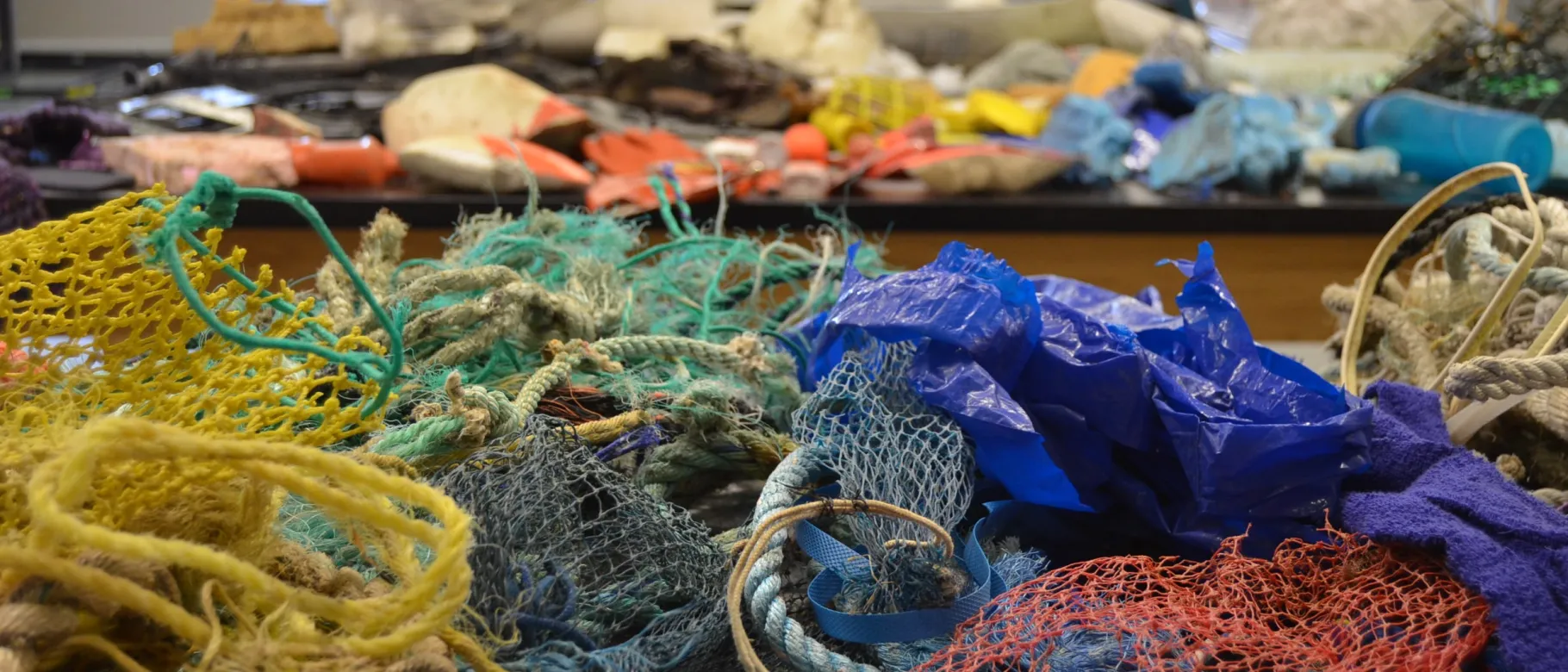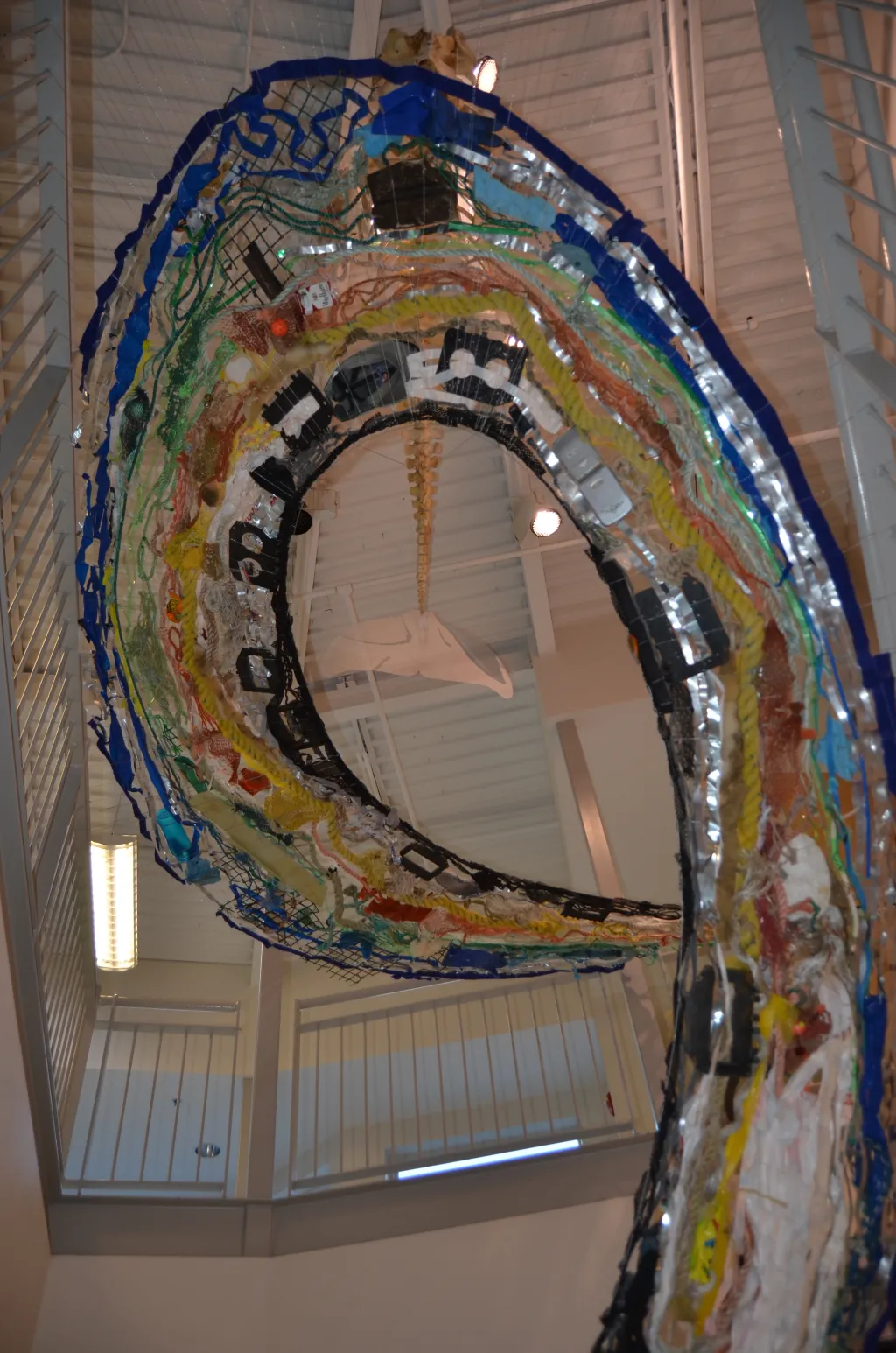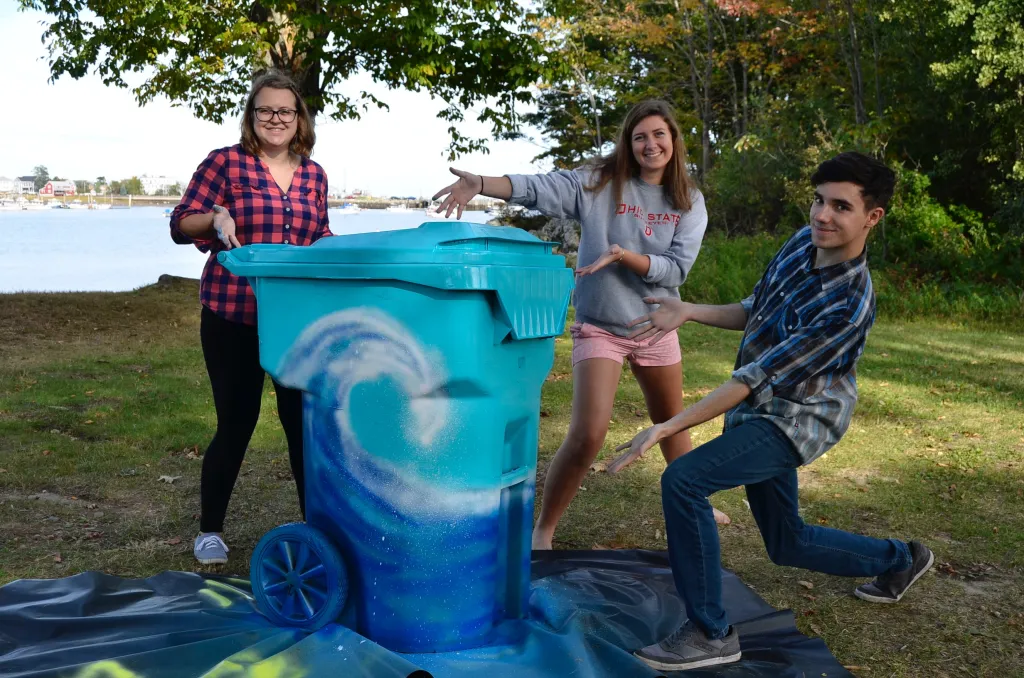UNE Artist-in-Residence creates sculpture from ocean debris

The typical goal of a coastal cleanup day is to collect the trash threatening the coastline and properly dispose of it. But when University of New England Artist-in-Residence Kim Bernard learned the Marine Pollution class was scheduled to pick up ocean debris at local beaches, she asked the students to keep the trash. It was the beginning of one of Bernard’s most significant projects at UNE to date: the Clean Ocean Wave Sculpture, also known as COWS.
Bernard and her work-study students painted a wave on a trash bin and placed it on campus, encouraging other students to collect ocean debris and deposit it in the bin for the project. Next the students diligently collected data on what they’d gathered. In total they collected 88 plastic bottles, 71 cans, 18 lobster trap pieces, 8 shoes, 7 glass bottles, 4 golf balls, 4 shotgun shells, 3 hats, 1 dog toy, 1 horseshoe, 1 plastic tarp, 1 pink kitty pool, 1 scarf, 1 CD case, 1 portable scale, 1 iron pipe, 1 gift card and lots of plastic bags, food wrappers, fish line and nets.
The next step was to color sort, clean and shred all of the material into weave-able strips. They hung a “loom” of stainless steel wire on the stair rails in the Arthur P. Girard Marine Science Center lobby. For three days they engaged the UNE community in a big trash weaving effort: UNE students, staff, faculty and even some of Bernard’s friends and family participated.
“The goal of the project was to engage the UNE community and raise awareness about just how much ocean debris washes up on our shores and how vitally important it is for us to keep our ocean clean,” said Bernard.
The story was picked up my media outlets across the state, with stories from Courier Publications, WCSH, WDEA, and WVII.
The Clean Ocean Wave Sculpture is now on permanent display at the Arthur P. Girard Marine Science Center.

